
Tien Phong reporter had an interview with Mr. Le Hoang Phong, Academic Director of YOUREORG Education & Training Consulting Organization to clarify this issue.
IELTS is not a “permanent ticket”
Can you share your personal opinion on the trend of IELTS certificate becoming a "golden ticket" in university admissions in Vietnam?
In just a few years, IELTS, originally designed as an assessment tool for academic English proficiency for studying abroad and migrating, has become the “golden ticket” in university admissions in Vietnam.
The rapid growth in numbers has surprised many people: National Economics University received up to 25,000 applications, Banking Academy received more than 13,000, many other schools increased 3-4 times in just one season.
On the surface, it’s a happy story: a generation of students eager to integrate, parents quick to respond, universities seeking more transparent selection methods. But beneath the surface are hidden ripples, painful questions about inequality, the risk of large-scale “foreign currency bleeding”, and most of all, the autonomy of Vietnamese education.
According to you, what should we do to make IELTS admission a driving force for development instead of a barrier?
Our country is at an important crossroads. If we continue to let an international exam shape the door to university, we will lose both fairness and autonomy. But if we know how to take advantage of this opportunity to build a strong domestic examination system, of international standards, opening up opportunities for all students regardless of circumstances, we will create the foundation for a generation of citizens who are both deeply integrated and confident in standing on their own two feet. This is not only the task of the education sector, but also the shared responsibility of the Government, schools, businesses and the whole society. Let's invest in real capacity, so that English becomes a bridge connecting Vietnam to the world , not a wall blocking the dreams of children.
According to you, what challenges are facing the use of IELTS certificates for university admission?
With over a decade of observing and working in education management, I have always believed that any form of assessment must meet three criteria: fairness, validity and sustainability. These are not only academic principles, but also the foundation for a healthy admission system. Currently, with IELTS in the context of Vietnam, all three of these criteria are being challenged.
In terms of fairness: the cost of test preparation and fees is a clear barrier. This is a structural inequality, where access to opportunity is tied to ability to pay. In an education system based on equity, this is a warning sign. In terms of value: IELTS is designed to assess the ability to study and live in an international environment. If it is only used to “pass” university and then drop out, its practical value will be greatly reduced.
In fact, many students have IELTS as an entry point but still have to relearn academic listening, speaking and writing skills. The degree becomes a destination instead of a means; the score becomes a goal instead of a capacity. And when learning English moves away from the core purpose of being able to apply it in life and academics, the IELTS certificate, even though it is framed solemnly, is just a valuable piece of paper suspended between expectations and the gap in real capacity.
Regarding sustainability: IELTS, despite its global reputation, is not tied to any fixed educational policy in Vietnam. Its value in admissions depends entirely on the decisions of management agencies and individual universities, which can change after just one circular or one admissions season. In fact, we have witnessed the abolition of converting IELTS 4.0 into a 10-point graduation score, or the rate of admission based on certificates being tightened without a long-term roadmap. That means, IELTS is not a “permanent ticket”, but only a temporary option in a system that is always in motion.
Building foreign language assessment capacity must be self-mastered
Do you have any advice for parents and students who still consider the IELTS certificate as a "golden ticket" in university admissions?
Parents and students need to realize that a sustainable learning strategy does not rely on a door that can be closed at any time, but on the real ability to walk through any door. And when an unsustainable choice is placed at the center of admissions, the cost goes beyond personal risk, to the economic burden and strategic loss for the entire country.
All these factors combined lead to a macro-consequence: it is estimated that each year, about 1,500 billion VND in IELTS fees are spent, 85% of which, equivalent to 1,275 billion, flows abroad. This amount of money is enough to upgrade the entire domestic English testing infrastructure, expand testing sites to mountainous districts, and sponsor tens of thousands of free test slots for disadvantaged students. This is not just a financial problem, but a problem of national capacity autonomy.
The IELTS certification exam poses the problem of maintaining the spirit of integration without being dependent. So, in your opinion, what should we do?
If we (from the Ministry of Education and Training, universities, domestic testing organizations to teachers and parents) are really serious about the goal of making English a second language, then the ability to assess foreign languages must be mastered by ourselves.
Autonomy is not only to ensure policy stability and sustainability, but also to ensure that every decision on output standards, testing methods or fees is in the best interests of Vietnamese learners first. No country can build a lasting language position if it is almost entirely dependent on an international testing organization that is not bound by its own specific needs and conditions.
To truly master the ability to assess foreign languages, we not only need political determination but also need to build and operate a domestic testing system that is reputable enough, competitive enough with international standards, and at the same time suitable for the conditions, needs and long-term development strategy of Vietnamese learners. VSTEP, a 6-level English test according to the CEFR framework, could be the strategic answer. The cost is only 1.2-1.8 million VND, the test is designed specifically for Vietnamese people, closely follows the general education program, is stable in difficulty, and does not "puzzle" candidates.
As of 2025, there are 38 licensed organizations to organize VSTEP, many top universities have accepted this certificate. If the goal is university admission, VSTEP is reliable and economical.
When students need to step out into the world, participate in international exchanges, apply for scholarships, or pursue graduate studies, taking the IELTS test will be a timely investment that brings real value.
But a good tool, no matter how effective and economical, will find it difficult to create sustainable change if it is not placed within an overall strategy and guaranteed by infrastructure, policies, and social consensus.
Therefore, for VSTEP or any domestic exam to stand firm alongside IELTS, we need a national plan for foreign language testing: raising test standards to international accreditation levels, ensuring transparent, safe and effective exam organization processes; investing in infrastructure, equipment and synchronous physical conditions from urban to remote areas; training and rewarding examiners, teachers and exam staff according to global standards; building a unified foreign language proficiency data system to monitor and analyze results; improving the quality of support services for candidates before, during and after the exam; and especially policies to ensure equal access such as exempting or reducing fees for disadvantaged students, opening exam sites to mountainous districts, providing free materials and training courses.
Thank you!

Schools in disarray after the storm, teachers worry about not having classrooms for the new school year

University Admissions 2025: Many Candidates 'Stuck'

Many candidates 'fakely passed' but failed all their wishes

Hanoi: Flooding, students cannot go to school

What does the Ministry of Education and Training say about the 30/30 university admission benchmark?
Source: https://tienphong.vn/bung-no-xet-tuyen-ielts-chuyen-gia-chi-ra-thach-thuc-va-bai-toan-chay-mau-ngoai-te-post1771219.tpo








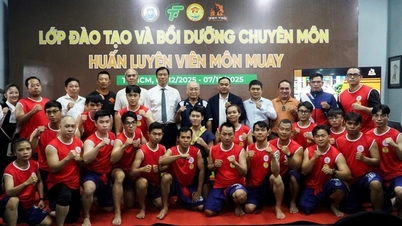

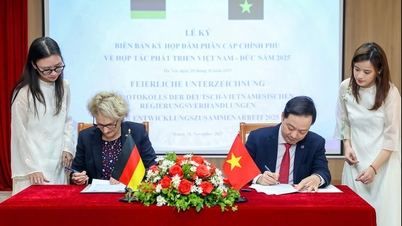

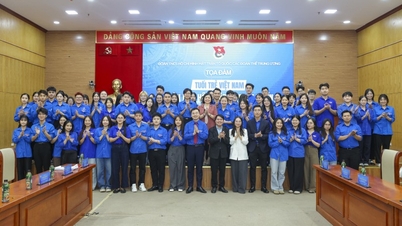

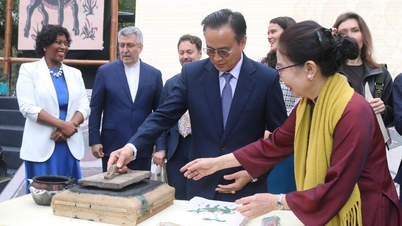





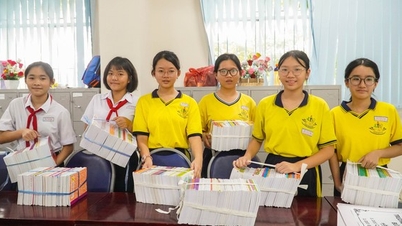


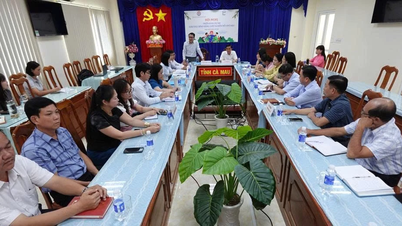















![[Photo] Worshiping the Tuyet Son statue - a nearly 400-year-old treasure at Keo Pagoda](/_next/image?url=https%3A%2F%2Fvphoto.vietnam.vn%2Fthumb%2F1200x675%2Fvietnam%2Fresource%2FIMAGE%2F2025%2F12%2F02%2F1764679323086_ndo_br_tempimageomw0hi-4884-jpg.webp&w=3840&q=75)
![[Photo] Parade to celebrate the 50th anniversary of Laos' National Day](/_next/image?url=https%3A%2F%2Fvphoto.vietnam.vn%2Fthumb%2F1200x675%2Fvietnam%2Fresource%2FIMAGE%2F2025%2F12%2F02%2F1764691918289_ndo_br_0-jpg.webp&w=3840&q=75)
































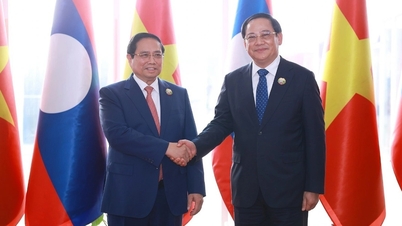





































Comment (0)